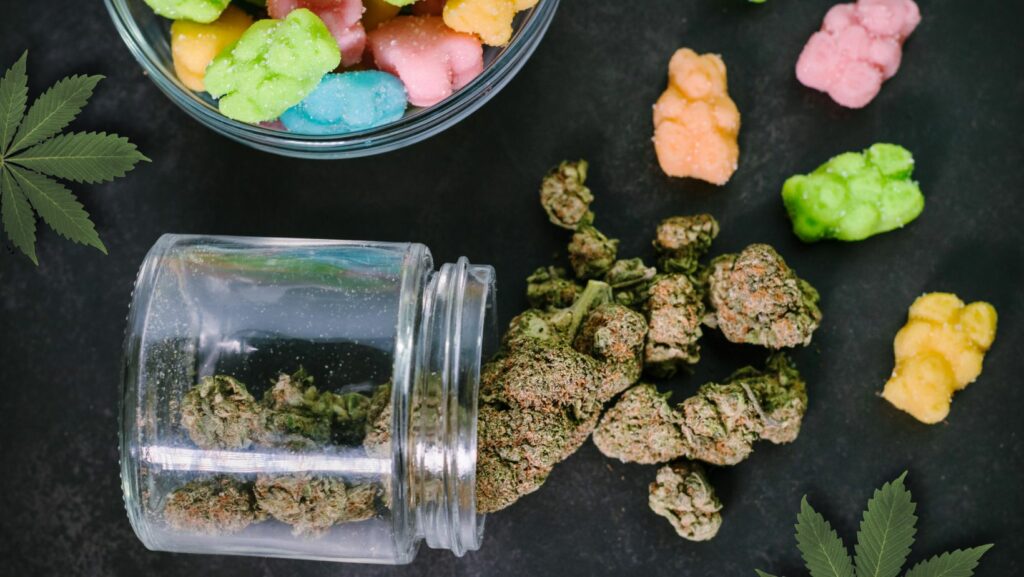Welcome to the intriguing world of Delta-8 THC, a minor cannabinoid making major waves in the cannabis industry. This lesser-known cousin of Delta-9 THC has piqued the interest of scientists, consumers, and regulators alike. But what exactly is Delta-8 THC, and how does it interact with the human body?
Delve into the science behind Delta-8 THC, exploring its unique mechanism of action. Learn how this compound works its magic, connecting with receptors in our bodies to produce its distinctive effects. This article aims to demystify the complexities of Delta-8 THC, offering a clear, knowledgeable, and confident overview of its interaction with the human body.
Understanding Delta-8 THC
A comprehensive exploration of Delta-8 THC provides insights not just into its properties, but also the intricacies of its interaction with the human body.
What Is Delta-8 THC?
Delta-8 THC qualifies as a unique variant of the well-known Delta-9 THC, commonly found in the cannabis plant. What sets it apart, stands as the minute but decisive molecular structure. These distinctions render Delta-8 THC a less potent, but still effective, psychoactive compound. Delta-8 THC, besides providing the user with a “high,” exerts a vital role in human physiology as it interacts extensively with the endocannabinoid system. For instance, Delta-8 carts comprise vape cartridges filled with Delta-8 THC distillate, potentially offering a smoother, more mellow experience compared to their Delta-9 THC counterparts.
Legal Status and Availability
As for legality, there’s a prevalent ambiguity surrounding Delta-8 THC. In the United States, the compound sits on a legal grey area in several states. The confused state of affairs primarily stems from the methods of its extraction, sometimes derived from CBD, a compound currently legal under the Farm Bill of 2018. Therefore, with constant shifts and evolution in cannabis regulations, it’s crucial to stay updated on the legal status of Delta-8 THC in one’s region. Despite the legal uncertainty, Delta-8 THC products, like Delta-8 carts, are relatively readily available in markets all across the states, either in-store or through online retailers.
Delta-8 THC’s Mechanism of Action
To understand the way Delta-8 THC functions, it’s vital to examine its relationship with the body’s native endocannabinoid system. This section will also explore the complex effects that this compound has on the brain, additionally addressing the overall physical body response.
Interaction with the Endocannabinoid System
Delta-8 THC interacts with the human body primarily occurs through its engagement with the endocannabinoid system. This network comprises cannabinoid receptors, named CB1 and CB2. Delta-8 THC shows a particular affinity for the CB1 receptor, mainly located in the brain and nervous system.
Upon consumption, Delta-8 THC molecules bind to these specific CB1 receptors, an action comparable to a spill matching a keyhole. This initiation triggers a series of biochemical reactions, leading to the resultant effects observed in an individual consuming Delta-8 THC.
Effects on the Brain and Body
Moving to the brain, Delta-8 THC’s interaction with the CB1 receptors ushers in various neurological effects. Chief among these is a mild psychoactive effect, felt as an altered sense of perception. Simultaneously, users report improved mood, anxiety reduction, and potentially even neuroprotective benefits.
Additionally, Delta-8 THC’s interaction with the general bodily systems isn’t confined to psychological impacts. Consumers cite Delta-8 carts for a range of potential physical therapeutic uses. These outcomes broadly include analgesic, anti-emetic, and appetite-stimulating effects, benefiting those with chronic pain, nausea, or diminished appetite.
Safety and Side Effects
Continuing the discussion on Delta-8 THC’s interactions with the human body, it’s crucial to outline the observed side effects and safety considerations when using Delta-8 THC, including in the form of Delta-8 carts.
Common Side Effects
Though Delta-8 THC may exhibit milder psychoactive effects than its Delta-9 counterpart, it’s not without potential adverse reactions. Regular consumption of Delta-8 THC might bring about side effects such as dry mouth, pink eyes, short-term cognitive impairment, and dizziness. It can also increase heart rate temporarily, so ample caution is required for people with heart-related issues.
Considerations for Safe Usage
As research into the effects of Delta-8 THC continues with a rising number of people exploring its use, safe usage remains paramount. Here are some critical considerations for safer consumption:

- Regulatory Compliance: Ensure that any Delta-8 THC products, including Delta-8 carts, comply with the necessary regulations and laws in your region.
- Start Low and Go Slow: As with many substances that interact with the endocannabinoid system, it’s best to start with a small dosage and slowly increase it, evaluating your body’s response along the way.
- Hydration and Nutrient Support: Attending to your body’s hydration and nutritional needs can help mitigate some common side effects like dry mouth.
- Respect Individual Differences: Remember, each individual’s body responds differently to Delta-8 THC. What works for others might not work for you, so it’s essential to listen to your body, and consult with health professionals as needed.
This section on safety and side effects further underscores Delta-8 THC’s complexity and the need for continued research to fully understand its impact on the human body.
Conclusion
Delta-8 THC’s unique properties and interactions with the endocannabinoid system make it a subject of growing interest. It’s clear that it differs from Delta-9 THC in effects and potential therapeutic benefits. Yet, it’s essential to remember the importance of safety considerations and individual response differences. Starting with low dosages, staying hydrated, and following regulatory guidelines can help ensure a safe experience. The need for further research to fully understand Delta-8 THC’s impact on the human body remains paramount.



More Stories
Step-by-Step Guide to Setting Up a Proxy in Dolphin Anty Browser
Copa América 2024: The Economic Impact of International Soccer Tournaments on Host Countries
What to Consider When Moving Your Family to a Tiny Home